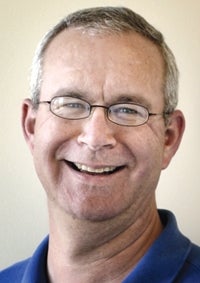While credit unions have been largely immune from the turmoil in the financial markets because of their conservative lending practices, they haven’t managed to completely escape the pressure.
That’s because trouble with national corporate credit union investments has meant credit unions across the United States have had to pay up. And the payments pushed many credit unions, including Marlborough-based Digital Federal Credit Union, into the red.
Specifically, Digital reported a $17.4 million loss in the first quarter of 2009.
Fund Levies
Digital, like all members of the National Credit Union Association, was required to pay 1 percent of its savings to the NCUA in order to shore up the National Credit Union Share Insurance Fund, which had been used to bail out two of the 28 corporate credit unions across the United States. The NCUA manages the share insurance fund.
Member credit unions then had to pay another 0.5 percent to a credit union stabilization fund to help members deal with the increased insurance fund payment.
In total Digital paid a $22.7 million assessment, which pushed the credit union giant (it’s the 15th largest in the U.S.) into the red for the first three months of the year.
“We decided to take all the pain this year and get it behind us,” said Tim Garner, Digital’s executive vice president of marketing and strategic planning. But Digital isn’t alone in feeling the pain: 80 percent of the 221 credit unions in the state lost money in the first quarter, according to data from the NCUA. A year ago at the same time, most credit unions were profitable, including Digital, which posted an $8.79 million profit for the first quarter of 2008.
The Lead Up
Several corporate credit unions, which provide financial services to credit unions, began losing money in the fall of 2008 due to large losses in November on their mortgage-related securities.
The National Credit Union Administration stepped in and guaranteed all shares of the corporate credit unions, so that their customers, retail credit unions, would be protected.
Federally insured credit unions must keep 1 percent of their insured savings on deposit in the share insurance fund.
But the NCUA used the existing money in the insurance fund to guarantee the flailing corporate credit unions.
It then put $1 billion into one of the largest ailing corporate credit unions, the U.S. Central Corporate Federal Union of Kansas.
The NCUA eventually put U.S. Central and Western Corporate Federal Credit Union, or Wescorp, of California, into conservatorship to stabilize both institutions.
It also increased insurance premiums from all credit unions for the National Credit Union Share Insurance Fund, which needed to be replenished after money was used to shore up the two large corporate credit unions.
“The good news is that they, all the credit unions, had enough capital and could continue to do business,” said Robert Kimmett, executive vice president of public relations and marketing for the Massachusetts Credit Union League, located in Marlborough.
Until very recently it was necessary under accounting rules for the credit unions to account for the increased insurance fund payment in the fourth quarter of last year, or the first or second quarter of this year.
The accounting requirement was changed recently when Congress passed a law that allowed the NCUA to borrow up to $6 billion from the U.S. Treasury, which will be paid back over time. It has already borrowed $1 billion of the $6 billion to shore up the corporate credit unions.
Now the premiums from individual retail credit unions can be paid over seven years instead of all at once.
It also means that the majority of credit unions will show a large increase in their second quarter revenues, when they receive all but this year’s premium back from the NCUA.
“It was an outside event that caused this kind of situation,” Kimmett said.
The bonds that the corporate credit unions invested in were mostly rated triple A and came recommended, Kimmett said.
When the financial markets, including eventually the bond market, faltered, the credit unions were forced to write off large losses from the bonds, which were suddenly worth much less money last fall when the financial markets went into a tail spin.
“It’s very unfortunate because in general, credit unions were not responsible at all for the problems in the financial markets,” said Garner. “Credit unions were not involved in the subprime mortgages, but just like everyone else, it’s now affecting us.”
Garner said the good news is that credit unions will be able to put the premium back on their books in the second quarter. Then the NCUA will levy an undetermined premium that can be paid over seven years, he said.
The U.S. Treasury and the NCUA knew it was important in a poor economy to make sure retail credit unions could continue to lend money for people to buy homes and to businesses so they can keep growing, Garner said.
Of course, there are exceptions to every situation. Workers’ Credit Union in Fitchburg managed to eek out a profit in the first quarter, despite the assessment.
“We’re plugging along, and we’re very, very proud we’re one of the 10 or 20 percent of credit unions that were profitable this quarter,” said Frederick Healey, president and CEO of Workers’.
Workers’ has very conservative lending policies and it has diversified its revenues sources, both of which have helped the institution, he said.
The credit union paid its insurance fund payment in the fourth quarter of 2008, to the tune of $5 million, but still had a profit for 2008 of more than $1 million.
For the first quarter of 2009, Workers’ saw a profit of $665,000.
“Economic cycles affect everybody differently, and for some the stabilization fund payments have just exacerbated existing problems,” Healey said.

